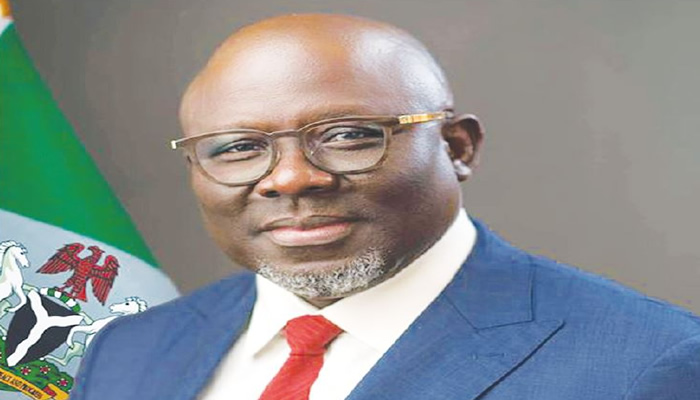The political landscape of Delta State recently witnessed a flurry of exchanges between the ruling Peoples Democratic Party (PDP) and the opposition All Progressives Congress (APC) following unsubstantiated rumors surrounding the potential defection of Governor Sheriff Oborevwori. The APC, in a statement, addressed these rumors, labeling them as mere speculation. However, the PDP, through its Information Commissioner, Dr. Ifeanyi Osuoza, responded sharply, criticizing the APC for entertaining and publicly addressing such unfounded claims. Osuoza characterized the APC’s reaction as stemming from a state of political anxiety and fear, fueled by Governor Oborevwori’s growing popularity and successful governance. He argued that the APC, having suffered defeat in the previous election, is now grappling with the prospect of another loss in the upcoming 2027 elections, given the governor’s strong performance and rising political stature.
Osuoza’s statement further condemned the APC for relying on rumour-mongering instead of focusing on factual information, a practice he deemed unbecoming of a political party, especially one whose spokesperson claims to be a legal professional. The PDP commissioner highlighted what he perceived as a pattern of irresponsible behavior from the Delta APC, suggesting that their anxieties were exacerbated by President Bola Tinubu’s public acknowledgement and commendation of Governor Oborevwori’s inclusive leadership style. This recognition from the President, a prominent figure in the APC, seemed to underscore the governor’s effectiveness and further unsettle the opposition party within the state. The PDP emphasized that their focus remains on the socioeconomic development and growth of the nation, the prosperity of its people, and the strengthening of democratic principles. These, according to Osuoza, are the core values guiding Governor Oborevwori’s administration, and they stand in stark contrast to what he depicted as the APC’s reliance on baseless propaganda.
The PDP’s response painted a picture of a confident ruling party, seemingly unfazed by the defection rumors and instead using the opportunity to highlight the governor’s achievements and the APC’s perceived weaknesses. The exchange further revealed the underlying tensions between the two parties in Delta State and set the stage for what could be a highly charged political atmosphere leading up to the 2027 elections. The PDP’s message effectively dismissed the defection rumors while simultaneously aiming to discredit the opposition and bolster Governor Oborevwori’s image as a strong and capable leader. By focusing on the governor’s positive relationship with President Tinubu and his commitment to good governance, the PDP sought to further solidify its position and project an image of stability and progress in the state.
The rumors of Governor Oborevwori’s defection, though unsubstantiated, served as a catalyst for a public exchange between the PDP and APC, revealing the existing political dynamics and potential future trajectories in Delta State. The PDP seized the opportunity to portray the APC as a party struggling to cope with Governor Oborevwori’s successful leadership, while simultaneously reinforcing its commitment to good governance and development. This episode highlights the importance of factual information in political discourse and underscores the potential consequences of relying on unsubstantiated claims. It also underscores how rumors, regardless of their veracity, can be strategically leveraged to further political agendas and shape public perception.
The interplay between the PDP and APC in Delta State, as exemplified by this recent exchange, demonstrates the ongoing power dynamics and the strategies employed by both parties to assert their dominance and influence. The PDP’s response effectively turned the tables, using the defection rumors as a platform to highlight their achievements and cast the opposition in a negative light. This tactical maneuvering underscores the competitive nature of politics and the importance of strategic communication in shaping public opinion. The incident also brought into focus the role of national figures like President Tinubu in influencing local politics, even inadvertently, through public endorsements and acknowledgements of state-level leadership.
In essence, the episode surrounding the defection rumors served as a microcosm of the broader political landscape in Delta State, revealing the strategies, priorities, and underlying tensions between the PDP and APC. The PDP successfully used the situation to project an image of stability and progress under Governor Oborevwori’s leadership, while simultaneously attempting to undermine the APC’s credibility. The incident underscored the critical role of effective communication and strategic maneuvering in the political arena, especially in the context of countering potentially damaging rumors and shaping public perception. It also highlighted the interplay between national and local politics, demonstrating how endorsements from prominent national figures can impact local political dynamics and influence public opinion within a specific state.














